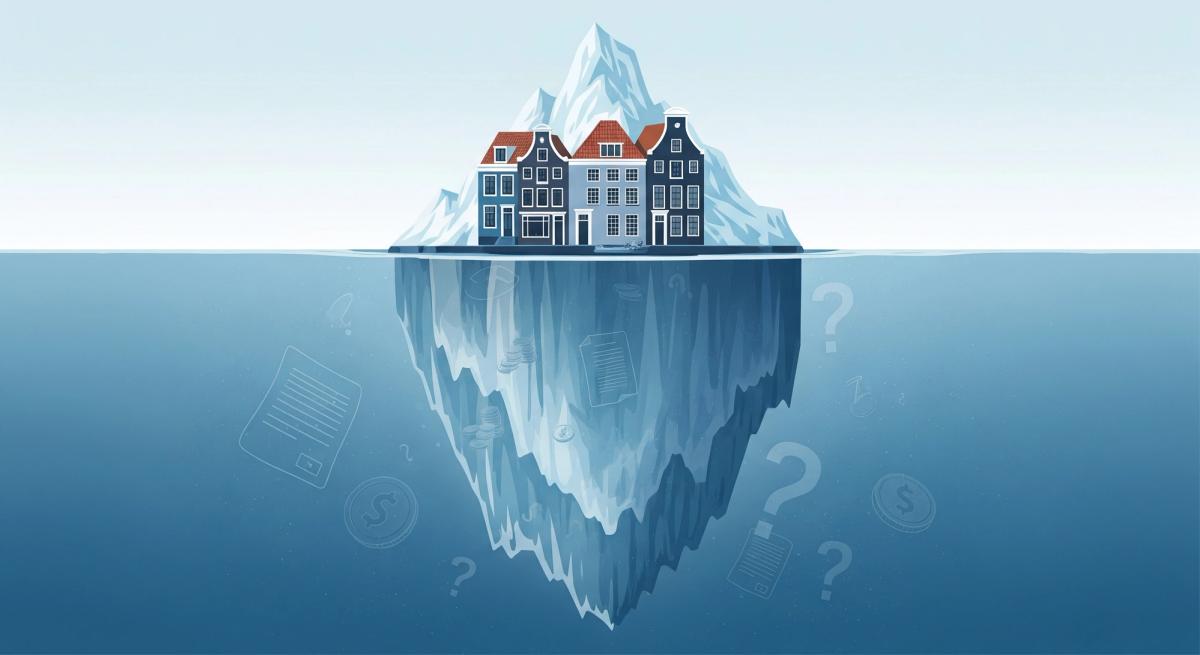The Hidden Costs of Buying a Home in the Netherlands: What You Need to Know

Buying a house is a big step, especially if you're new to the Dutch housing market. While many people focus on the asking price, the actual total cost of buying a home in the Netherlands is often much higher.
Here’s what you should know before signing any contracts — and how platforms like Huisly can help you navigate the process more confidently.
1. Transfer Tax (Overdrachtsbelasting)
This is one of the biggest extra costs. For most buyers, the transfer tax is 2% of the purchase price. If you're buying a €400,000 home, that’s €8,000 on top of the asking price.
Exceptions:
First-time buyers under 35 may qualify for a one-time exemption (if the property costs under €510,000 in 2024).
If you buy a second property (for example, as an investment), the rate may be 10.4%.
2. Notary and Registration Fees
The property must be officially transferred through a Dutch notary. This process involves two legal documents:
The deed of transfer (leveringsakte)
The mortgage deed (hypotheekakte)
You’ll also pay for registering the property in the Kadaster (land registry). 💡 Expect notary costs between €1,000 and €2,000.
3. Real Estate Agent (Makelaarskosten)
Using a buyer’s agent (aankoopmakelaar) isn’t required, but it can be helpful — especially if you're new to Dutch property law or don’t speak Dutch fluently.
A buyer’s agent typically charges 1–2% of the purchase price, or a fixed fee.
At Huisly, we collect listings from dozens of agencies, including Funda and Pararius, so you can search independently and compare listings yourself without pressure.
4. Valuation Report (Taxatierapport)
Your mortgage provider usually requires a professional valuation of the property. This report ensures the home is worth the price you’re paying.
Average cost: €500–€800
5. Mortgage Advice and Brokerage Fees
If you get help from a mortgage advisor (hypotheekadviseur), you’ll likely pay between €1,500 and €3,000 for advice and mediation with banks.
This is optional, but often helpful for expats who aren’t familiar with Dutch financing systems.
6. Technical Inspection (Bouwkundige Keuring)
Before buying an older property, it's smart to get a structural inspection to check for hidden issues like moisture, cracks, or outdated wiring.
Cost: Around €350–€500 — and it could save you thousands in surprise repairs.
7. National Mortgage Guarantee (NHG)
If you’re taking a mortgage under the NHG (Nationale Hypotheek Garantie) system, you’ll pay a one-time premium of 0.6% of the mortgage amount. However, NHG gives added protection in case of financial hardship.
8. Moving and Setup Costs
Don’t forget the cost of:
Moving company
Utilities setup (water, gas, electricity, internet)
Furniture, appliances, and minor repairs
These "after-purchase" costs can easily run into a few thousand euros.
How to Budget for Everything
To avoid surprises, a good rule of thumb is to add 6–10% on top of the purchase price when budgeting for a home in the Netherlands.
For example, if the house is €350,000, plan for a total spend of around €371,000 to €385,000 once all costs are included.
Want to Make It Easier?
Platforms like Huisly simplify your home search by gathering listings from popular sites like Funda, Pararius, Kamernet and more — all in one place. Whether you’re buying or renting, Huisly helps you search smarter, faster, and more confidently.
Final Thoughts
Buying a house in the Netherlands is exciting — but it comes with costs that many buyers don’t expect at first.
By understanding what to prepare for and using tools like Huisly to support your search, you’ll be better equipped to make a smart, stress-free investment in your new Dutch home.
Ready to find your dream home? Explore thousands of listings — all in one place — with Huisly. Compare options, save time, and stay informed at every step.
Get the Huisly App!
Download our app for the best experience, instant notifications, and exclusive features for renters and buyers in the Netherlands.
Download the App